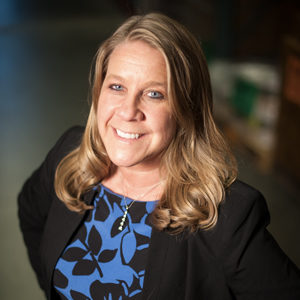
Jamie Garcia
End-of-year giving is only one component of your year-round fundraising efforts. Strategies for a successful end of the year in which you meet your goals and donors feel seen and appreciated begin with looking at your entire development calendar – and analyzing what efforts have been effective and what has room for improvement. This can be quite a collaborative activity, with your team looking at the entire calendar.
Noting the national holidays relative to your organization (think about Grandparents Day if you work with seniors or National Pet Month if your organization serves animals) helps in planning special communications and micro-campaigns.
Once you've mastered the plan for the year — I recommend taking steps in August to plan your end-of-year touchpoints around important dates.
Jamie Garcia
Once you’ve mastered the plan for the year — I recommend taking steps in August to plan your end-of-year touchpoints around important dates. For example, will your organization participate in one or more giving days in November or December? Consider other events such as holidays, elections (we all know to be aware this year!), and if your organization’s end-of-year date hits on a weekend when you are closed. Do you plan to send emails and/or direct mail? What will your segmenting look like? What days of the week do holidays fall on and what are the best days to communicate? Once you make your final decisions, take steps to make your team aware of these dates this month.
Diving deeper into direct mail and email for end-of-year campaigns: we often get questions about how much is too much when it comes to communicating with donors. If you plan to send a direct mail piece alongside emails, I recommend including donors in both of these outreach lists. Always assume that every person wants to give to your organization until they specifically tell you they’re not interested! Especially if your donor pool has a wide variety in age, casting a wider net ensures you make efforts to connect with everyone in the ways they prefer to be contacted. Some donors dislike multiple direct mail pieces, though a series of emails is often needed to effectively reach donors and close end-of-year gifts.
Knowing your donor pool is key when it comes to segmentation for an end-of-year campaign, which can be done by age. For example, I recommend connecting with donors approaching 72 (or those who are older!) about required minimum distributions. When it comes to informing your donors about these opportunities, planned gifts, and other non-cash gifts, consider educational communication pieces in the Summer, far before you send any end-of-year messaging. Planting this seed early can get your donors thinking about their giving in advance, and also before other organizations begin discussing this kind of giving with them.
At almost every organization, there are donors who give a significant contribution at the eleventh hour – sometimes on the last day of the year! Perhaps your organization is closed during this time – even if this is the case, you can let your donors know that your development team is available. Your team should have a plan for when your last act donors want to hand-deliver their check on the last day of the year.
Balancing one-on-one donor meetings during the end of the year certainly proves to be a challenge. While you may not want to schedule many of these sessions in December, I recommend having both the budget and bandwidth to deliver a small token of gratitude to your most generous donors (bread, poinsettias, etc.) – which often yields the perfect opportunity for them to send you back to the office with their end of year gift.
Along these same lines, it can be difficult to accomplish all of the donor appreciation that needs to take place in your end-of-year calendar, especially following giving days. I recommend utilizing volunteers (from your development committee, your board, or elsewhere) to make light of many thank you calls and notes. At the same time, it’s also important that signed thank you form letters have a personal touch – I always ask for materials that arrived with the donor’s gift (cards and notes) to also make their way to me. If someone has given to my organization in honor of their friend’s 80th birthday, I want to say much more than thank you – I want to add to their story! Something along the lines of “thank you for celebrating Helen’s 80th birthday and including us in the fun,” would help the donor see that I noticed the specific reason they gave.



